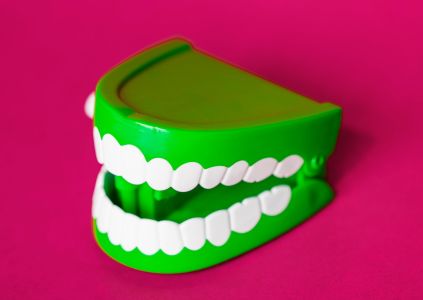Myths and Facts about Dental Implants

Use of dental implants offers an excellent solution to replace broken or missing teeth. Dental implants consist of titanium posts that are fixed in the root. A dental crown is placed on it to complete the treatment. Dental implants are essentially supporting structures for the replacement teeth.
Due to the nature of the procedure, many people feel apprehensive about seeking treatment involving dental implants. But with proper information at your disposable, you can make an informed choice about choosing dental implants for your well-being.
Here are some myths and facts about dental implants.
Myth 1 –
The procedure to fix dental implants is very painful
Fact –
Dentists use local anesthesia before every dental surgery. It results in no pain during the procedure. Experienced dentists also ensure that their patients are comfortable before starting the procedure.
For instance, if you require dental implants Springfield then carefully choose a dentist with adequate experience in offering the service. You can check the websites of reputed dentists in the city and find out more about their qualifications, experiences, and clinics. A qualified and experienced dentist will perform the procedure so well that you won’t feel any pain during the procedure. Experienced dentists use the right type and dose of local anesthesia for the comfort of their patients.
Myth 2 –
Dental implants are very expensive
Fact –
The cost of dental implants is a one-time expense. Dental implants fixed by experienced dentists can last a lifetime with proper care at your end. Unlike dentures or dental bridges, you won’t need to replace dental implants every few years. At the least, your dental implants can last you up to 20 years.
The cost of dental implants can sometimes vary according to the location of the dental clinic. For instance, dental implants in Springfield may cost less than other nearby cities in the state. Your dentist can guide you about the costs of the dental implants before you decide to go ahead with the procedure. Feel free to ask your dentist about the cost of the entire procedure. A professional dentist will always offer you the right information to help you make an informed decision about your dental health.
Myth 3 –
Dental implants look unnatural
Fact –
Dental implants are, in fact, as close to your natural teeth as possible. It is not possible for a layperson to recognize dental implants. In the hands of an experienced dental surgeon, you can rest assured that you won’t have a problem with having dental implants.
You will be able to eat and drink normally with your dental implants in place. After a few days of living with dental implants, you will begin to feel them as a normal part of your mouth. Once you get used to them completely (which is never long), you won’t feel any difference eating, drinking, or smiling with your dental implants in place.
Myth 4 –
Dental implants require a lot of care
Fact –
All you need to do is treat your dental implants like your regular teeth and brush and floss as usual. There is no special care required for dental implants. Your dentist will guide you to properly take care of your dental implants for a few days post the procedure.
Myth 5 –
Dental implant surgery requires extensive healing time
Fact –
It is understandable that people may assume dental implant procedure to require extensive healing time – after all, it is a surgery. But it takes only a few days for the healing process to complete.
Depending on the extent of the procedure, you might need a little longer for the recovery process. But you will not be required to sit at home and rest completely after your dental implant procedure.
Myth 6 –
All dentists can perform dental implant surgery
Fact –
Dental implant surgery requires special training. Only qualified and experienced dental surgeons can perform such surgeries properly. It is not unusual for inexperienced dentists to offer services for dental implant surgery. For this reason, it is very important to choose the right Springfield dental clinic for the procedure.
